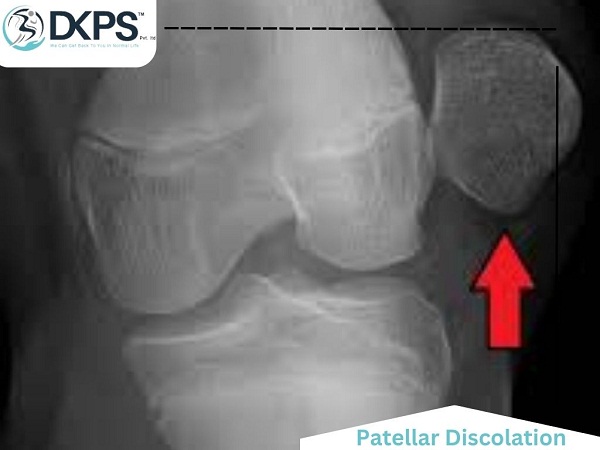- Home
- About Us
- DKPS Dealing
- BLOG
- Delhi NCR
- Delhi
- Physiotherapy at Home Near Me | Physiotherapist in South Delhi
- Best Chiropractor in Delhi
- Physiotherapist in Delhi
- Cupping Therapy in Delhi
- Home Nursing Services in Delhi
- Needle Therapy for Back Pain
- Sports Injury Physiotherapy
- Best Physiotherapist Visit at Home in Rohini Sector 24
- Physiotherapy at Home In Rohini Sector 9 |
- Physiotherapist in Pitampura | Physiotherapy at Home in Pitampura
- Physiotherapy at home in Rohini sector 29
- Physiotherapist in Paschim Vihar
- Physio home visit | Home Visit Physiotherapy |
- Physiotherapist in Saket | Best Physiotherapist in Saket |
- Physiotherapist In Janakpuri | Best Physiotherapist in Janakpuri |
- Best Physiotherapist in Punjabi Bagh | Punjabi Bagh Physiotherapist |
- Best Physiotherapist Service at Home in Dwarka, Delhi
- Best Physiotherapist in Chandigarh at Home Visit
- Faridabad
- Gurugram
- Noida
- Best Physiotherapy Gorakhpur
- Best Physiotherapist in Lucknow | Physiotherapist in Lucknow near me |
- Delhi
- Mumbai
- Delhi NCR
- Department
- Doctors
- Gallery
- Packages
- Contact Us
- Home
- About Us
- DKPS Dealing
- BLOG
- Delhi NCR
- Delhi
- Physiotherapy at Home Near Me | Physiotherapist in South Delhi
- Best Chiropractor in Delhi
- Physiotherapist in Delhi
- Cupping Therapy in Delhi
- Home Nursing Services in Delhi
- Needle Therapy for Back Pain
- Sports Injury Physiotherapy
- Best Physiotherapist Visit at Home in Rohini Sector 24
- Physiotherapy at Home In Rohini Sector 9 |
- Physiotherapist in Pitampura | Physiotherapy at Home in Pitampura
- Physiotherapy at home in Rohini sector 29
- Physiotherapist in Paschim Vihar
- Physio home visit | Home Visit Physiotherapy |
- Physiotherapist in Saket | Best Physiotherapist in Saket |
- Physiotherapist In Janakpuri | Best Physiotherapist in Janakpuri |
- Best Physiotherapist in Punjabi Bagh | Punjabi Bagh Physiotherapist |
- Best Physiotherapist Service at Home in Dwarka, Delhi
- Best Physiotherapist in Chandigarh at Home Visit
- Faridabad
- Gurugram
- Noida
- Best Physiotherapy Gorakhpur
- Best Physiotherapist in Lucknow | Physiotherapist in Lucknow near me |
- Delhi
- Mumbai
- Delhi NCR
- Department
- Doctors
- Gallery
- Packages
- Contact Us
Patella Discolation
- Home
- Patella Discolation

Patella Discolation
what is Patella Dislocation? Patella dislocation is a common injury that affects the knee joint. The patella, or kneecap, is a small bone that sits at the front of the knee and is responsible for protecting the joint and helping to facilitate movement. When the patella becomes dislocated, it moves out of its normal position and can cause pain, swelling, and limited mobility in the affected knee. In this article, we will explore the causes, symptoms, diagnosis, and treatment options for patella dislocation.
Causes of Patella Dislocation
Patella dislocation can be caused by a variety of factors, including:
Trauma: Trauma to the knee, such as a fall or a blow to the knee, is one of the most common causes of patella dislocation. This type of injury can cause the patella to be forced out of its normal position.
Abnormal anatomy: Some people are born with an abnormality in the anatomy of their knee joint, which can make them more prone to patella dislocation.
Muscle imbalances: Muscle imbalances around the knee joint can also contribute to patella dislocation. For example, if the muscles on the inside of the thigh are stronger than those on the outside, this can cause the patella to be pulled out of place.
Ligament laxity: If the ligaments around the knee joint are loose or stretched, this can make the patella more likely to dislocate.
Symptoms of Patella Dislocation
The symptoms of patella dislocation can vary depending on the severity of the injury. Some common symptoms include:
Pain: Pain in the knee is one of the most common symptoms of patella dislocation. The pain may be mild or severe and can be felt in the front, back, or sides of the knee.
Swelling: Swelling around the knee joint is another common symptom of patella dislocation. The swelling may be mild or severe and can make it difficult to move the affected knee.
Limited mobility: Patella dislocation can also cause limited mobility in the affected knee. The knee may feel stiff or locked, and it may be difficult to bend or straighten the leg.
A popping or snapping sound: Some people may hear a popping or snapping sound when the patella dislocates.
Diagnosis of Patella Dislocation
To diagnose patella dislocation, a doctor will perform a physical examination of the knee and may also order imaging tests such as X-rays, MRI, or CT scans. During the physical examination, the doctor will check for signs of swelling, tenderness, and instability in the knee joint. They may also move the patella to see if it moves out of its normal position.
Imaging tests can help to confirm the diagnosis of patella dislocation and determine the extent of the injury. X-rays can show if there are any fractures or other bone abnormalities in the knee joint, while MRI or CT scans can provide a detailed image of the soft tissues in the knee, such as the ligaments, tendons, and muscles.
Treatment of Patella Dislocation
The treatment of patella dislocation will depend on the severity of the injury and the underlying https://drsinghphysiocare.com/ cause. Some common treatment options include:
Rest, ice, and elevation: In mild cases of patella dislocation, resting the affected knee, applying ice to the area, and keeping the leg elevated can help to reduce pain and swelling.
Rehabilitation exercises: Rehabilitation exercises can help to strengthen the muscles around the knee joint and improve mobility. These exercises may include stretches, range of motion exercises, and strengthening exercises.
Bracing or taping: Bracing or taping the knee can help to support the joint and prevent further injury.
How Drsinghphysiocare Can Help:-
Senior physicians select our talented and experienced physiotherapists after they meet our strict recruitment standards. As a result of our higher standards and quality of service, many patients have recovered from the comfort of their homes and saved their valuable time and money.
